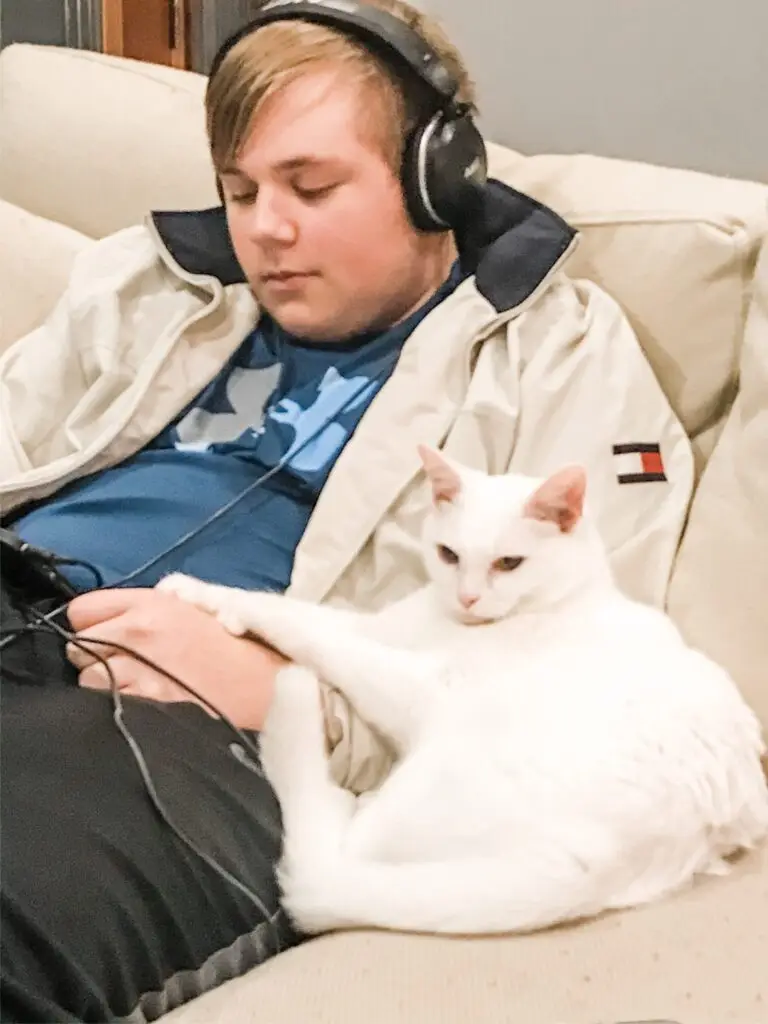Go from reacting in the moment to creating lasting change.
Join us for the free Behavior SOS Summit.
Turn daily battles into breakthroughs. Join 26 experts over 4 free days for practical tools and a framework to decode behavior and create more peace at home and school — without shame, blame, or quick fixes. This Summit is where overwhelm softens, clarity rises, and everything starts to shift.
Oct. 10-13, 2025








Dear Penny and Luke Thank you so much for sharing this podcast. I love hearing from you both guiding our high functioning ASD and ADHD son's journey. Your wisdoms and inspiring journey are very helpful to guide us down the path. Thanks for making such a big difference for the community. Greatly appreciated. 🙂
Penny and Luke, I really appreciate the time you took to do this. The conversation was something I really needed to be able to help and understand my son better. Thank you so much! ❤️
Thank you Penny and Luke for sharing your journey.
Thank you Luke for sharing your perspectives and insights to help me to understand my own children better
Thank you so much, Luka! This is going to help me understand my almost 10 years old kid so much better. I really appreciate your insights, you're a smart and funny young adult.
Hey Luke! Thanks for being willing to have a conversation with your mom that I could listen to. You made me smile and laugh throughout! I'll be honest, I decided to listen to the conversation because I am procrastinating about getting down to the work that I have to do (sound familiar?). This diversion was worthwhile. I love your analogies, similes and metaphors! I'm impressed that you are now able to figure out what is feeding stress in your life and are learning how to deal with it. That life knowledge is so important for success in the “big picture”. I'll be using some of your thoughts from this conversation when I meet with an 18-year-old client, also graduating this year, next week. Thanks for your insight. Best of luck finishing your last four high school courses. You've got this!!!
Awesome thanks for sharing Luke!
Thank you, Penny and Luke! I really enjoyed your conversation and have received great insights from both of you that will help me so much with my own kiddos. It can be a lonely path as a mom sometimes when you just don’t have a lot of people in your life who understand and know the right things to say that are both truthful and helpful. The content here is the perfect blend of help and truth, with great humor thrown in to make it fun.
Thank-you Luke for sharing so many important points in helping us help our children.
Thank you so much Luke, I learnt a lot of insights from your interview. I’ll try to apply some of your advice with my son! All the best for you!
Thank you so much Luke! I really appreciated you sharing your experiences so I can better understand how my son’s brain works and what I can do to better understand and support him. Bravo!
Penny, thank you for convincing Luke to share in this podcast.
Luke, I am very grateful to you for sharing your experiences and analogies. I think we need more of this so that parents, teachers and others are able to have a better understanding. There are ups and downs, and we are constantly learning.
Loved this episode! I'd love to hear more from Luke about his experiences in school and things that helped him. I've adopted a 10 year old w/ ADHD (now 12) who really struggles after her lunch period and I've noticed this pattern the last few years.
This was fab! Stay ‘weird' Luke, I love your style – the world needs more of it 🙂 I would definitely tune in to more!
Hi Luke, I want to let you know that I really enjoyed this episode that you did with your mom. I have listened to many many talks given by adults trying to help us the parents to support you guys better. I'm so happy to hear one coming from the other side of the aisle, giving us the first hand perspective of how you guys feel and what worked and work did not. Thank you! I wish you will consider doing more of these in the future. By the way, I really liked the part of the talk where you talked about fairness and you are encouraging other kids not to give up the helpful things just because other kids may not have it. I also really liked your jokes and analogies. Thank you for this unique episode and look forward to more from you!
Penny and Luke…you saved us! My 14 year old daughter has ADHD & dyslexia & Auditory Processing. I can understand her better after this podcast! So many similarities! And great tips & insights! Thank you! Luke…you're an amazing person!